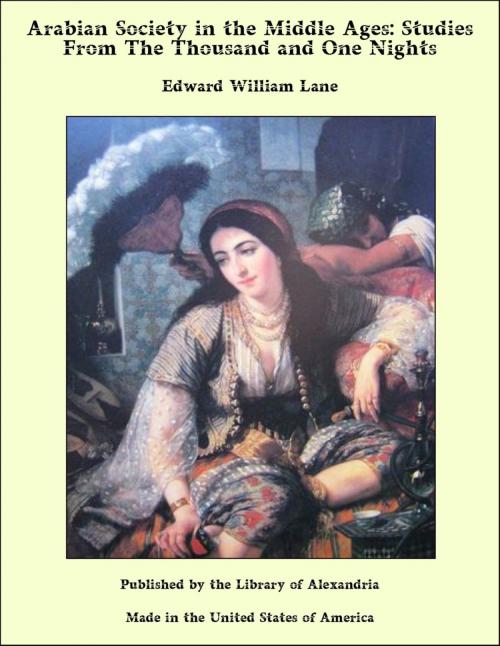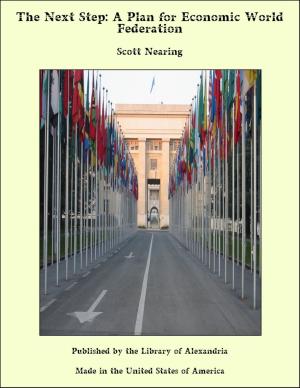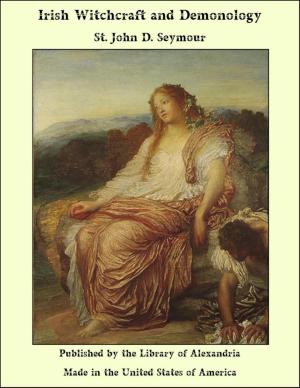Arabian Society in the Middle Ages: Studies From The Thousand and One Nights
Nonfiction, Religion & Spirituality, New Age, History, Fiction & Literature| Author: | Edward William Lane | ISBN: | 9781465561169 |
| Publisher: | Library of Alexandria | Publication: | March 8, 2015 |
| Imprint: | Language: | English |
| Author: | Edward William Lane |
| ISBN: | 9781465561169 |
| Publisher: | Library of Alexandria |
| Publication: | March 8, 2015 |
| Imprint: | |
| Language: | English |
Many doctors have argued that destiny respects only the final state of a certain portion of men (believers and unbelievers), and that in general man is endowed with free will, which he should exercise according to the laws of God and his own conscience and judgment, praying to God for a blessing on his endeavours, or imploring the intercession of the Prophet or of any of the saints in his favour, and propitiating them by offering alms or sacrifices in their names, relying upon God for the result, which he may then, and then only, attribute to fate or destiny. They hold, therefore, that it is criminal to attempt resistance to the will when its dictates are conformable with the laws of God and our natural consciences and prudence, and so passively to await the fulfilment of God's decrees.—The doctrine of the ur-án and the traditions respecting the decrees of God, or fate and destiny, appears, however, to be that they are altogether absolute and unchangeable, written in the beginning of the creation on the "Preserved Tablet" in heaven; that God hath predestined every event and action, evil as well as good,—at the same time commanding and approving good, and forbidding and hating evil; and that the "cancelling" mentioned in the preceding paragraph relates (as the context seems to show) to the abrogation of former scriptures or revelations, not of fate. But still it must be held that He hath not predestined the will; though He sometimes inclines it to good, and the Devil sometimes inclines it to evil. It is asked, then, If we have the power to will, but not the power to perform otherwise than as God hath predetermined, how can we be regarded as responsible beings? The answer to this is that our actions are judged good or evil according to our intentions, if we have faith: good actions or intentions, it should be added, only increase, and do not cause, our happiness if we are believers; and evil actions or intentions only increase our misery if we are unbelievers or irreligious: for the Muslim holds that he is to be admitted into heaven only by the mercy of God, on account of his faith, and to be rewarded in proportion to his good works. The Prophet's assertions on the subject of God's decrees are considered of the highest importance as explanatory of the ur-án.—"Whatever is in the universe," said he, "is by the order of God."—"God hath pre-ordained five things on his servants; the duration of life, their actions, their dwelling-places, their travels, and their portions."—"There is not one among you whose sitting-place is not written by God, whether in the fire or in paradise."—Some of the companions of the Prophet, on hearing the last-quoted saying, asked him, "O Prophet, since God hath appointed our places, may we confide in this, and abandon our religious and moral duties?" He answered, "No: because the happy will do good works, and those who are of the miserable will do bad works."
Many doctors have argued that destiny respects only the final state of a certain portion of men (believers and unbelievers), and that in general man is endowed with free will, which he should exercise according to the laws of God and his own conscience and judgment, praying to God for a blessing on his endeavours, or imploring the intercession of the Prophet or of any of the saints in his favour, and propitiating them by offering alms or sacrifices in their names, relying upon God for the result, which he may then, and then only, attribute to fate or destiny. They hold, therefore, that it is criminal to attempt resistance to the will when its dictates are conformable with the laws of God and our natural consciences and prudence, and so passively to await the fulfilment of God's decrees.—The doctrine of the ur-án and the traditions respecting the decrees of God, or fate and destiny, appears, however, to be that they are altogether absolute and unchangeable, written in the beginning of the creation on the "Preserved Tablet" in heaven; that God hath predestined every event and action, evil as well as good,—at the same time commanding and approving good, and forbidding and hating evil; and that the "cancelling" mentioned in the preceding paragraph relates (as the context seems to show) to the abrogation of former scriptures or revelations, not of fate. But still it must be held that He hath not predestined the will; though He sometimes inclines it to good, and the Devil sometimes inclines it to evil. It is asked, then, If we have the power to will, but not the power to perform otherwise than as God hath predetermined, how can we be regarded as responsible beings? The answer to this is that our actions are judged good or evil according to our intentions, if we have faith: good actions or intentions, it should be added, only increase, and do not cause, our happiness if we are believers; and evil actions or intentions only increase our misery if we are unbelievers or irreligious: for the Muslim holds that he is to be admitted into heaven only by the mercy of God, on account of his faith, and to be rewarded in proportion to his good works. The Prophet's assertions on the subject of God's decrees are considered of the highest importance as explanatory of the ur-án.—"Whatever is in the universe," said he, "is by the order of God."—"God hath pre-ordained five things on his servants; the duration of life, their actions, their dwelling-places, their travels, and their portions."—"There is not one among you whose sitting-place is not written by God, whether in the fire or in paradise."—Some of the companions of the Prophet, on hearing the last-quoted saying, asked him, "O Prophet, since God hath appointed our places, may we confide in this, and abandon our religious and moral duties?" He answered, "No: because the happy will do good works, and those who are of the miserable will do bad works."















